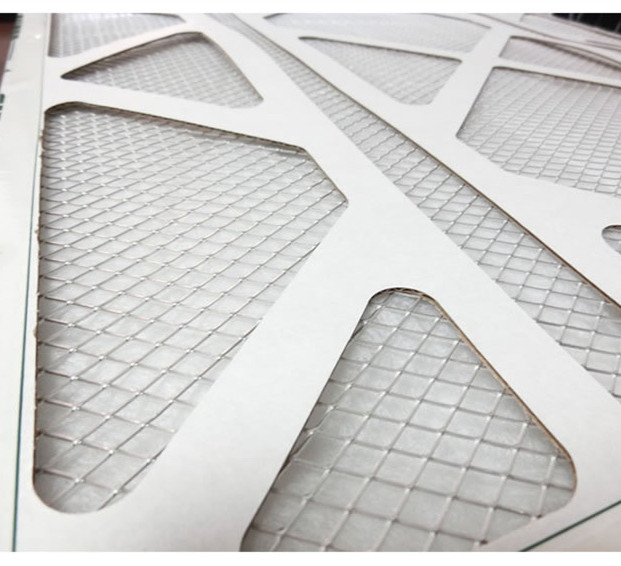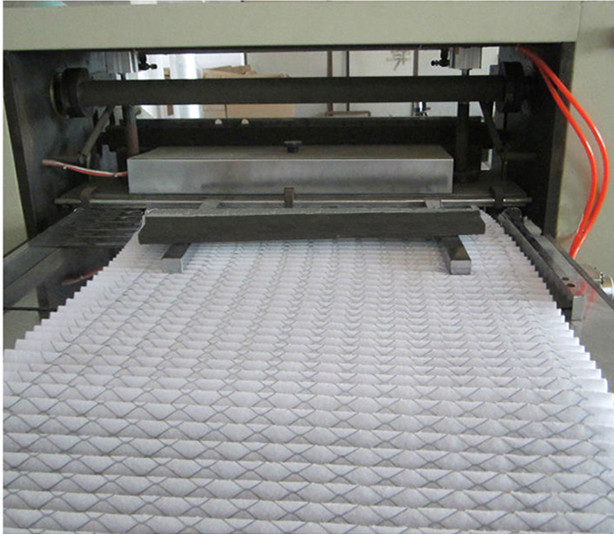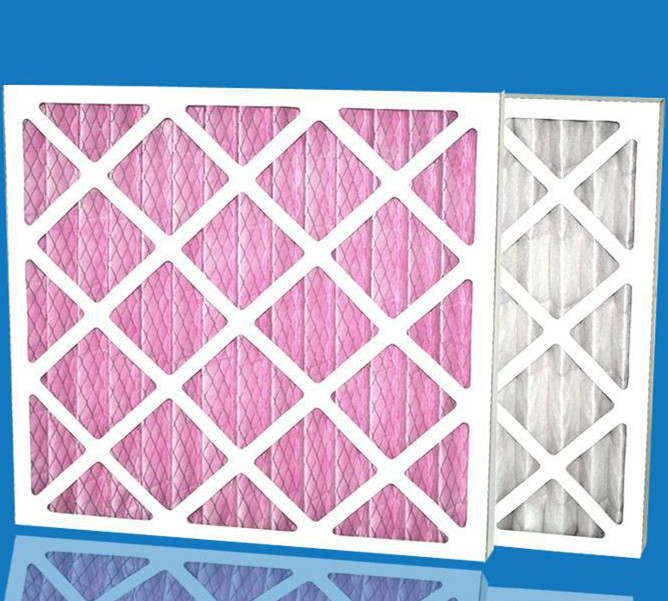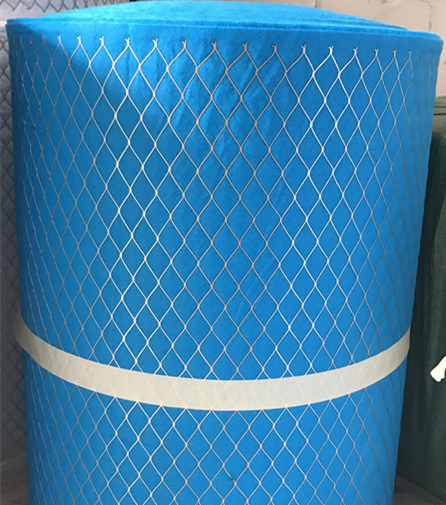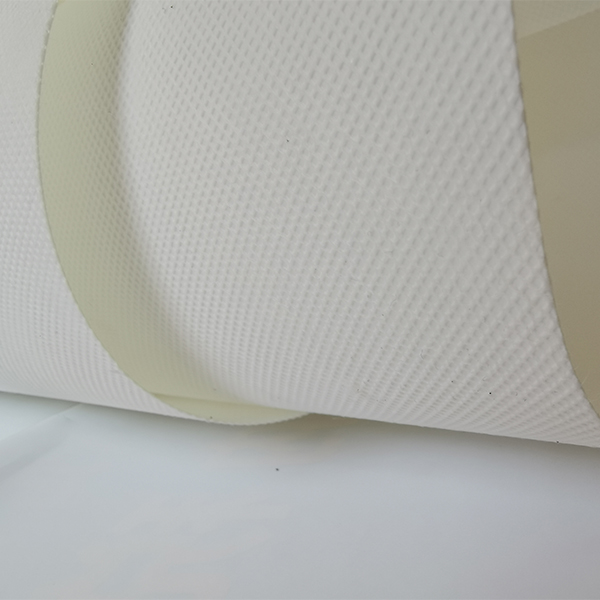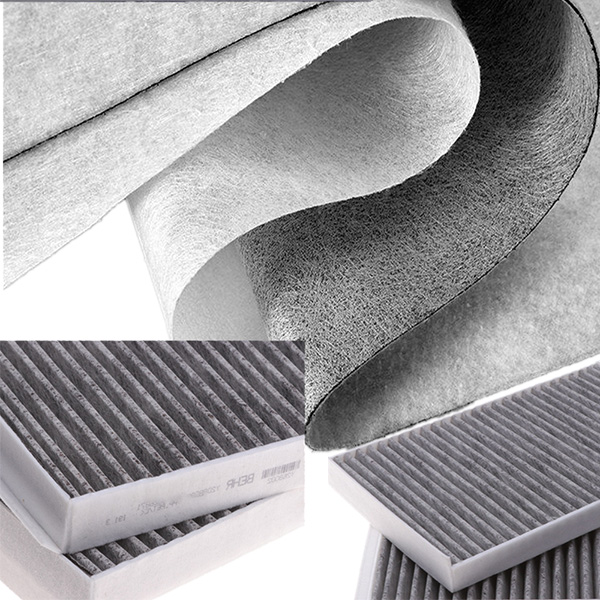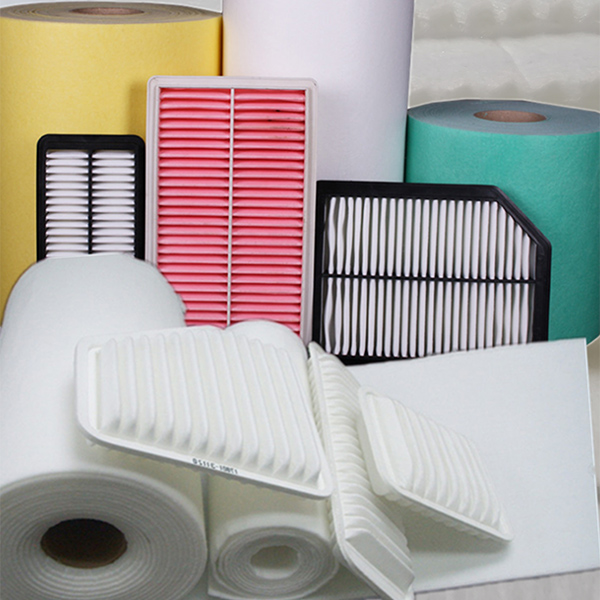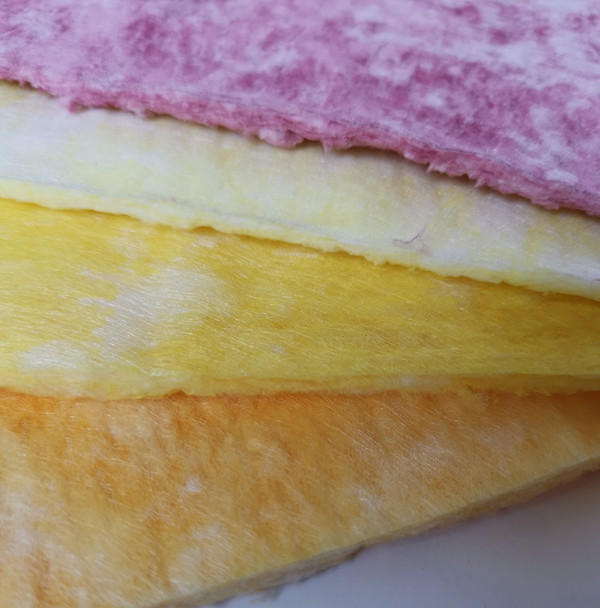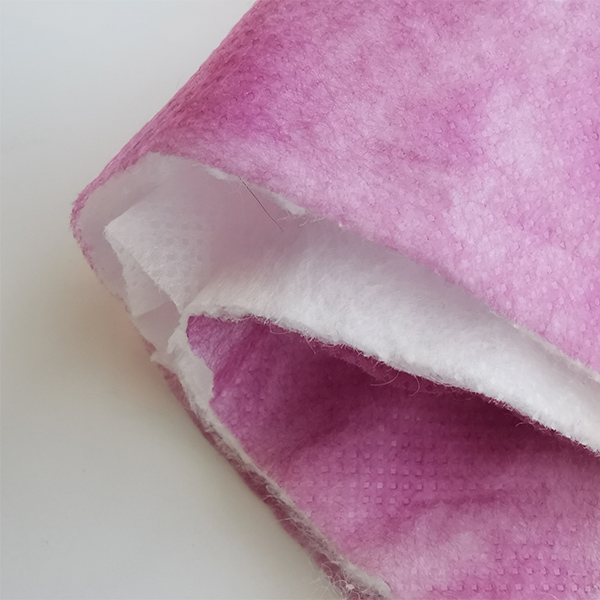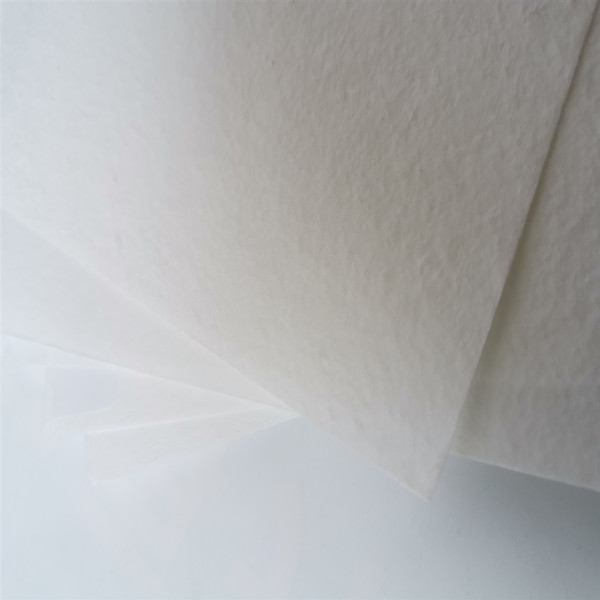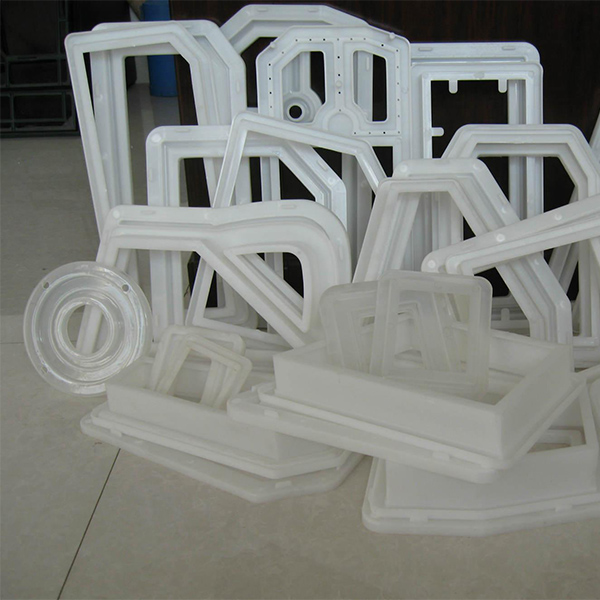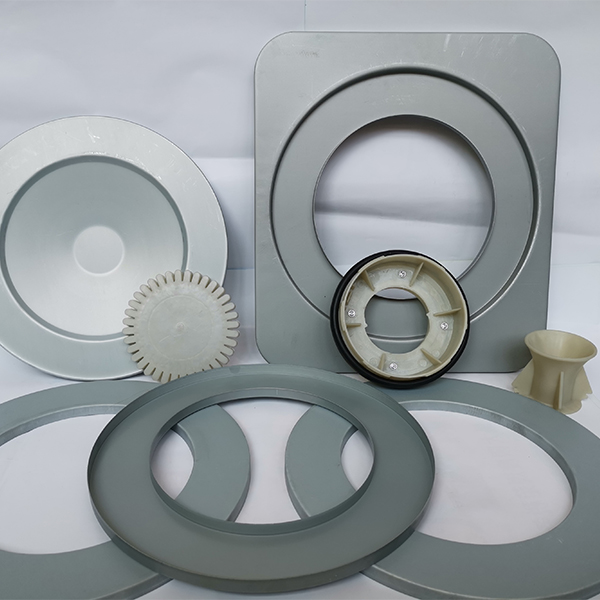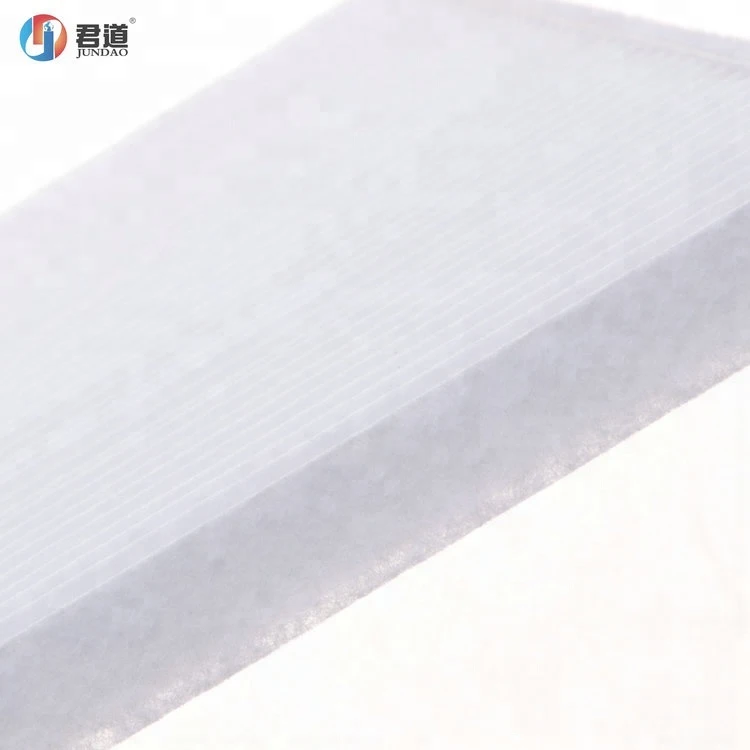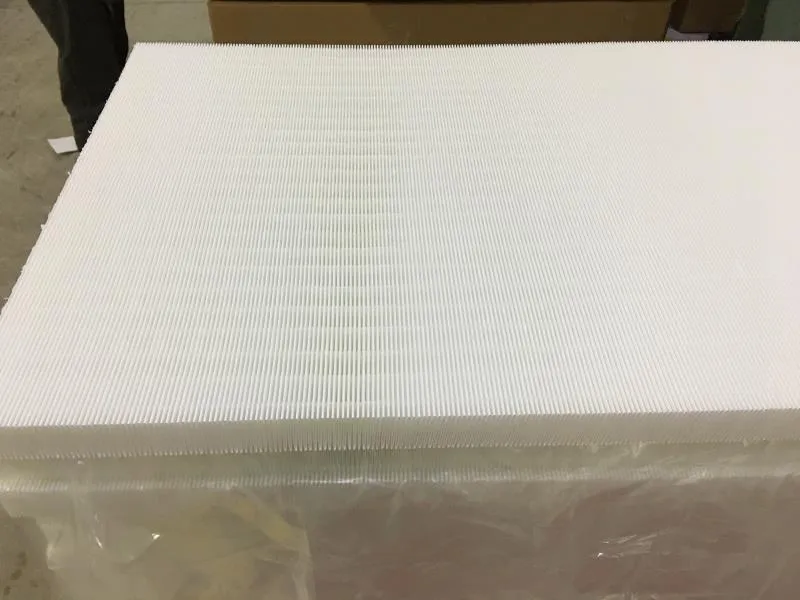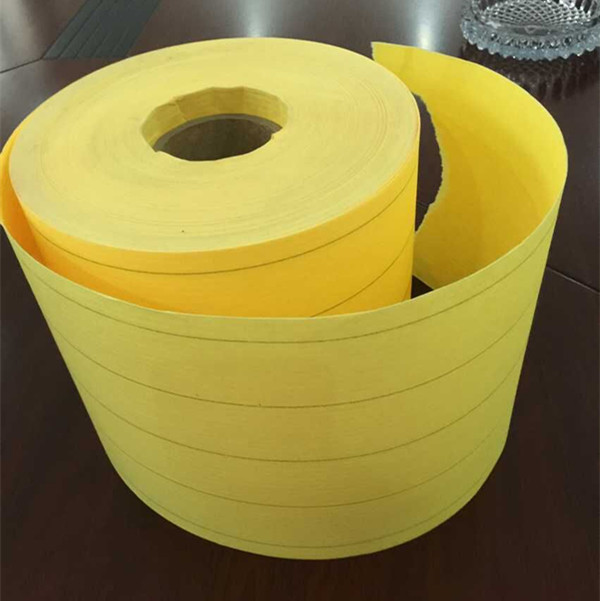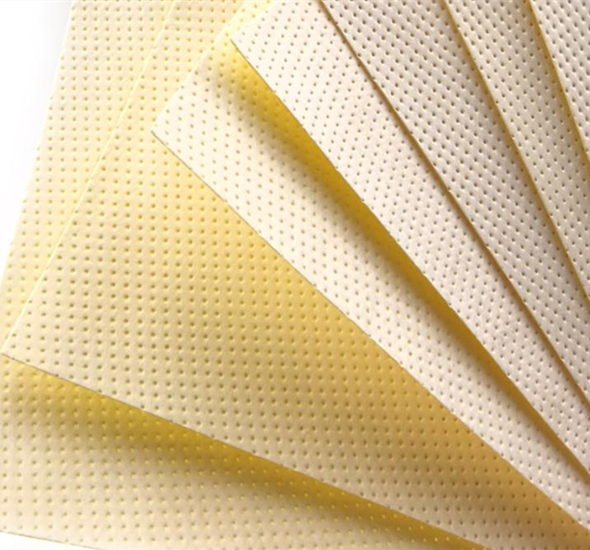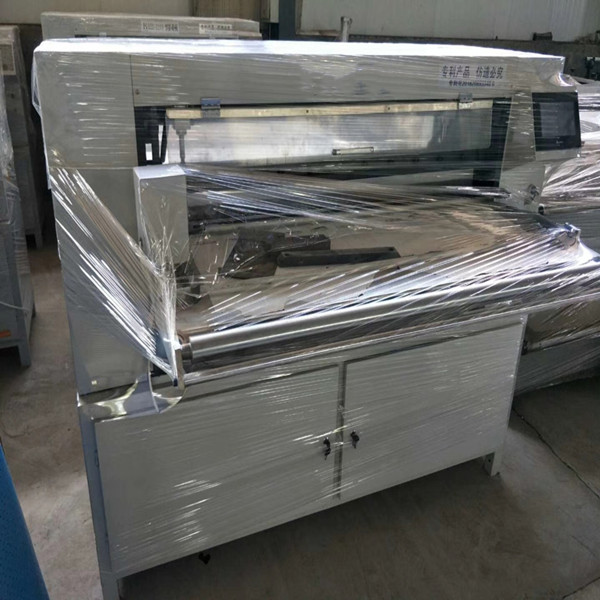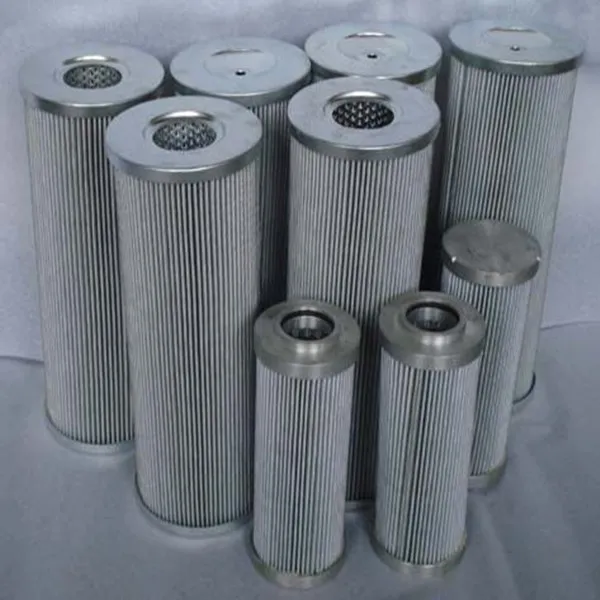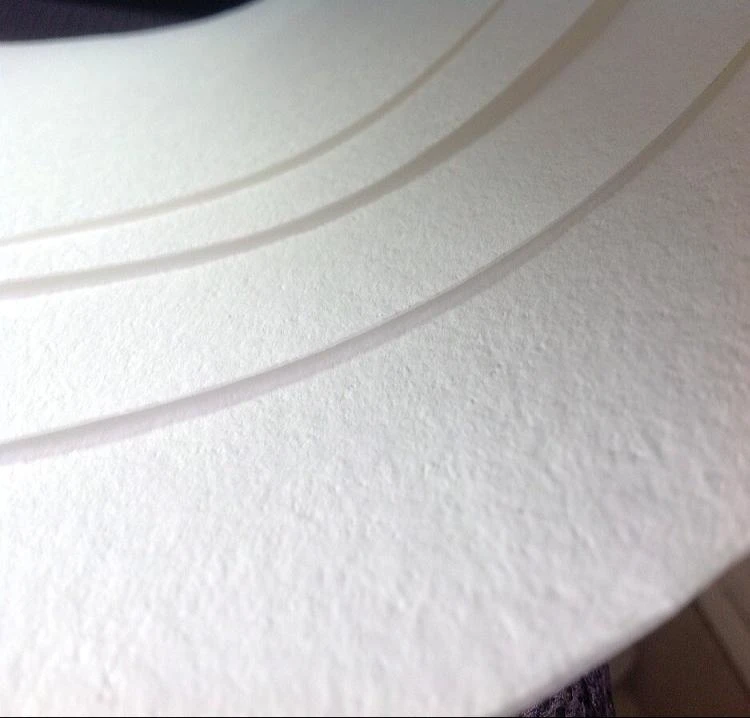Synthetic Polypropylene Laminate Media Roll
Synthetic polypropylene laminate media yob
Daim ntawv thov:
Siv los tsim pleated lim
Pre-filter rau huab cua pom qhov system
Haum rau folding hom lim
Khoom nta:
Siv hluavtaws polypropylene, maj mam encryption manufacturing txheej txheem;
Tsawg pib tsis kam, siab plua plav tuav peev xwm;
Cov nplaim hluav taws zoo, cov qauv kev faib hluav taws xob tuaj yeem ua tau raws li European DIN53438-F1;
Moisture-resistant tuaj yeem ncav cuag 100%;
| Tsis muaj. | Yam khoom No. | Kev piav qhia | |
| 1 | G4 xiav / dawb media laminated hlau mesh | 24" / 610mm dav * 150m ntev Dawb media: 610mm dav; hlau mesh: 580mm dav |
|
| 2 | 25" / 635mm dav * 150m ntev Dawb media: 635mm dav; hlau mesh: 605mm dav |
||
| 3 | 20" / 508mm dav * 150m ntev Dawb media: 508mm dav; hlau mesh: 478mm dav |
||
| 4 | 28" / 711mm dav * 150m ntev Dawb media: 711mm dav; hlau mesh: 681mm dav |
||
| Hom | Qhov ntev | Nruab nrab raug ntes | Cua Ceev ceev |
Pib siab |
Kub kub ℃ | |
| W × L × H | Lim | % | m/s | tab sis | ||
| Chav kawm | ||||||
| UA-G 3 | Luas = 0.61 m x 150 m | G3 | ≤ 50 | 2.5 | 60 | 80 |
| IS-G4 | Luas = 0.61 m x 150 m | G4 | ≤82 | 2.5 | 75 | 80 |
What is Synthetic Air Filter Media and Why is it Used in Filtration?
Synthetic air filter media is a man-made filtration material composed of engineered polymers such as polyester, polypropylene, or blended fibers. Unlike traditional materials like fiberglass or cellulose, synthetic media offers superior durability, moisture resistance, and customizable filtration efficiency. It is widely used in HVAC systems, automotive filters, and industrial applications because of its ability to capture fine particles while maintaining high airflow rates. The material’s hydrophobic properties prevent mold and bacterial growth, making it ideal for humid environments. Additionally, synthetic media can be electrostatically charged to enhance particle attraction, improving filtration without increasing airflow resistance. Its versatility, longevity, and performance consistency make it a preferred choice for modern filtration needs where reliability and efficiency are critical.
Multi-Layer Synthetic Air Filter Rolls for High Dust Holding Capacity
Multi-layer synthetic air filter rolls are designed to maximize dust-holding capacity while maintaining optimal airflow. These filters use a gradient density structure, with progressively finer layers that capture larger particles first while allowing smaller ones to be trapped deeper within the media. This design prevents premature clogging and extends filter life, reducing maintenance frequency. The synthetic fibers provide high tensile strength, resisting tears and deformation even under heavy particulate loads. Applications include commercial HVAC systems, industrial dust collectors, and automotive air intake filters, where high dust loads are common. The multi-layer approach ensures consistent performance over time, making these rolls cost-effective for high-demand environments that require both efficiency and longevity.
Synthetic vs Fiberglass Air Filter Media
Synthetic air filter media outperforms fiberglass in several key aspects, including durability, moisture resistance, and filtration efficiency. While fiberglass is cost-effective and provides decent filtration, it is fragile and prone to tearing, especially in high-velocity airflow systems. Synthetic media, on the other hand, is more robust, resistant to humidity, and can be engineered for higher dust-holding capacity. Fiberglass filters often require a supportive frame, whereas synthetic media maintains structural integrity independently. Additionally, synthetic filters can incorporate electrostatic enhancement for better particle capture without sacrificing airflow. However, fiberglass remains useful in high-temperature applications where certain synthetic materials may degrade. For most modern HVAC and automotive uses, synthetic media is the superior choice due to its balance of strength, efficiency, and longevity.


